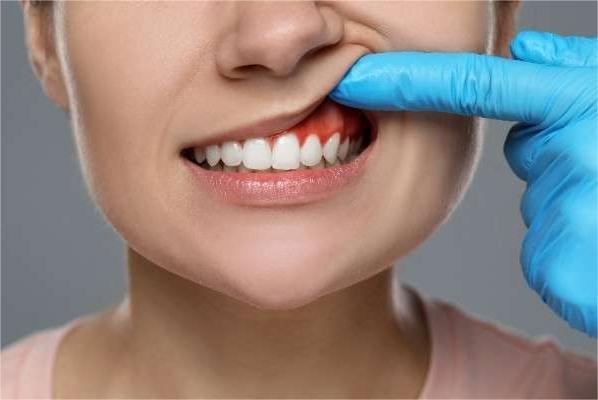Gums Swollen Overnight? It’s Time to Take Action in Blackburn

Waking up with swollen gums can be an alarming experience. Whether the discomfort is mild or severe, gum inflammation is never something to ignore. It often signals an underlying dental issue that could escalate if not addressed promptly. If you’re in Blackburn and notice your gums are puffy, red, or painful, it’s crucial to act now. Swollen gums can stem from various causes ranging from minor irritations to serious infections and timely intervention can prevent complications.
In this article, we’ll explore common causes of swollen gums, when you should seek help, and the available treatment options in Blackburn. We’ll also guide you on finding the right dental professionals for emergency care and hygiene maintenance.
Why Are My Gums Swollen?
Swollen gums typically indicate inflammation, known medically as gingival swelling. This can happen due to:
1. Gingivitis
Gingivitis is the most common cause of swollen gums. It results from plaque buildup along the gumline, which leads to irritation and inflammation. If left untreated, gingivitis can progress to periodontitis, a more severe form of gum disease.
2. Infections
Viral or bacterial infections in the mouth such as herpes or dental abscesses can cause sudden gum swelling. In some cases, a swollen gum might be isolated to one area, especially near an infected tooth.
3. Allergic Reactions
Sometimes, an allergy to toothpaste, mouthwash, or dental materials (like certain metals in fillings) can lead to gum irritation.
4. Poor Oral Hygiene
Inconsistent brushing or flossing allows plaque and food debris to accumulate. This not only causes swelling but also bad breath and tooth decay.
5. Nutritional Deficiencies
Deficiencies in Vitamin C (scurvy), B vitamins, or iron can also contribute to gum inflammation and bleeding.
6. Hormonal Changes
Pregnancy, menstruation, or menopause may cause gums to swell due to hormonal fluctuations that increase blood flow to gum tissues.
7. Side Effects from Medications
Certain medications, such as anti-seizure drugs, immunosuppressants, or blood pressure medications, can lead to gum overgrowth or swelling.

Signs Your Swollen Gums Need Immediate Attention
Swollen gums aren't always an emergency but they can be. You should seek immediate care if:
- The swelling appeared suddenly and is severe
- There's persistent bleeding even without brushing
- You have a fever or feel unwell
- You notice pus around the gums or teeth
- The pain interferes with eating or sleeping
In such situations, it’s wise to consult an emergency dentist in Blackburn who can assess the situation and provide fast relief.
Emergency vs. Routine Care: Knowing the Difference
Not all gum problems require emergency treatment. Here’s how to distinguish between urgent and non-urgent gum issues:
Emergency Situations
- Rapid swelling that’s spreading to the face or jaw
- Abscess formation
- Unbearable pain that doesn’t respond to painkillers
- Bleeding that won’t stop
Routine Issues
- Mild swelling or tenderness
- Occasional bleeding during brushing
- Chronic bad breath or plaque build-up
For non-urgent issues, scheduling an appointment with a hygienist in Blackburn can be highly beneficial. A hygienist can perform deep cleanings and offer personalized oral care advice to prevent future flare-ups.
Home Remedies You Can Try (But Don’t Rely On Them Alone)
If your symptoms are mild and you’re waiting for an appointment, there are a few steps you can take at home to alleviate discomfort:
- Salt Water Rinse: Mix a teaspoon of salt in warm water and rinse gently. This can reduce inflammation and fight bacteria.
- Cold Compress: Apply a cold pack to your cheek near the swollen area to ease pain and swelling.
- Hydration: Drink plenty of water to stimulate saliva flow and wash away food particles.
- Avoid Irritants: Steer clear of tobacco, alcohol, and spicy foods that can aggravate your gums.
However, while these remedies can provide temporary relief, they are not substitutes for professional care.
Preventing Swollen Gums in the Future
Prevention is always better than cure. Here’s how to reduce your risk of gum swelling:
1. Consistent Oral Hygiene
Brush your teeth at least twice a day with a fluoride toothpaste and floss daily. Don’t forget to brush your tongue!
2. Regular Dental Visits
Routine check-ups allow dentists to detect early signs of gum issues. Professional cleanings from a hygienist in Blackburn can remove hardened plaque (tartar) that regular brushing can’t.
3. Healthy Diet
Consume a balanced diet rich in vitamins C and D, calcium, and antioxidants. These nutrients help maintain strong teeth and gums.
4. Stress Management
Chronic stress can weaken your immune system, making you more susceptible to infections including those affecting your gums.
5. Quit Smoking
Tobacco use is a major risk factor for gum disease. Quitting can dramatically improve your oral health and reduce inflammation.
What to Expect at Your Dental Appointment
If you’re seeing an emergency dentist or hygienist, knowing what to expect can ease your anxiety.
During an Emergency Visit
The dentist will:
- Examine your mouth and gums
- Take X-rays to assess bone or tooth involvement
- Drain any abscess if necessary
- Prescribe antibiotics or pain relief medication
- Recommend follow-up care or referrals to specialists
During a Hygienist Appointment
The hygienist will:
- Perform a deep cleaning or scale and polish
- Remove plaque and tartar
- Provide brushing and flossing tips
- Discuss personalized oral care routines
Both professionals work together to ensure you receive complete and ongoing care.
Swollen Gums in Children and Teens
If your child or teenager has swollen gums, don’t dismiss it as a phase. It could be due to:
- Poor brushing habits
- New braces or retainers
- Hormonal changes
- Underlying nutritional deficiencies
In such cases, consulting a dentist or hygienist in Blackburn ensures proper guidance and early intervention.

When All Else Fails: Consider Advanced Treatments
For recurring or chronic gum issues, you may need advanced treatments such as:
- Scaling and Root Planing: A deep-cleaning procedure that reaches below the gumline
- Laser Therapy: Minimally invasive treatment for infected gum tissue
- Gum Surgery: In severe cases of periodontitis, flap surgery or grafting may be required
Your emergency dentist will discuss all available options and refer you to a periodontist if necessary.
Conclusion
Waking up with swollen gums is never pleasant but it’s your body’s way of telling you that something needs attention. Whether it’s a mild irritation or a sign of something more serious, don’t delay. Seek professional help to get to the root of the issue and restore your oral health. Regular hygiene appointments and early interventions go a long way in preventing gum problems from recurring. If you're in Blackburn and dealing with sudden gum swelling, you're not alone expert help is just around the corner. Take that first step toward relief and recovery with EDA Group by your side.
- Vibnix Blog
- Politics
- News
- Liberia News
- Entertainment
- Technology
- Educación
- Art
- Causes
- Crafts
- Dance
- Drinks
- Film
- Fitness
- Food
- Juegos
- Gardening
- Health
- Home
- Literature
- Music
- Networking
- Other
- Party
- Religion
- Shopping
- Sports
- Theater
- Wellness



